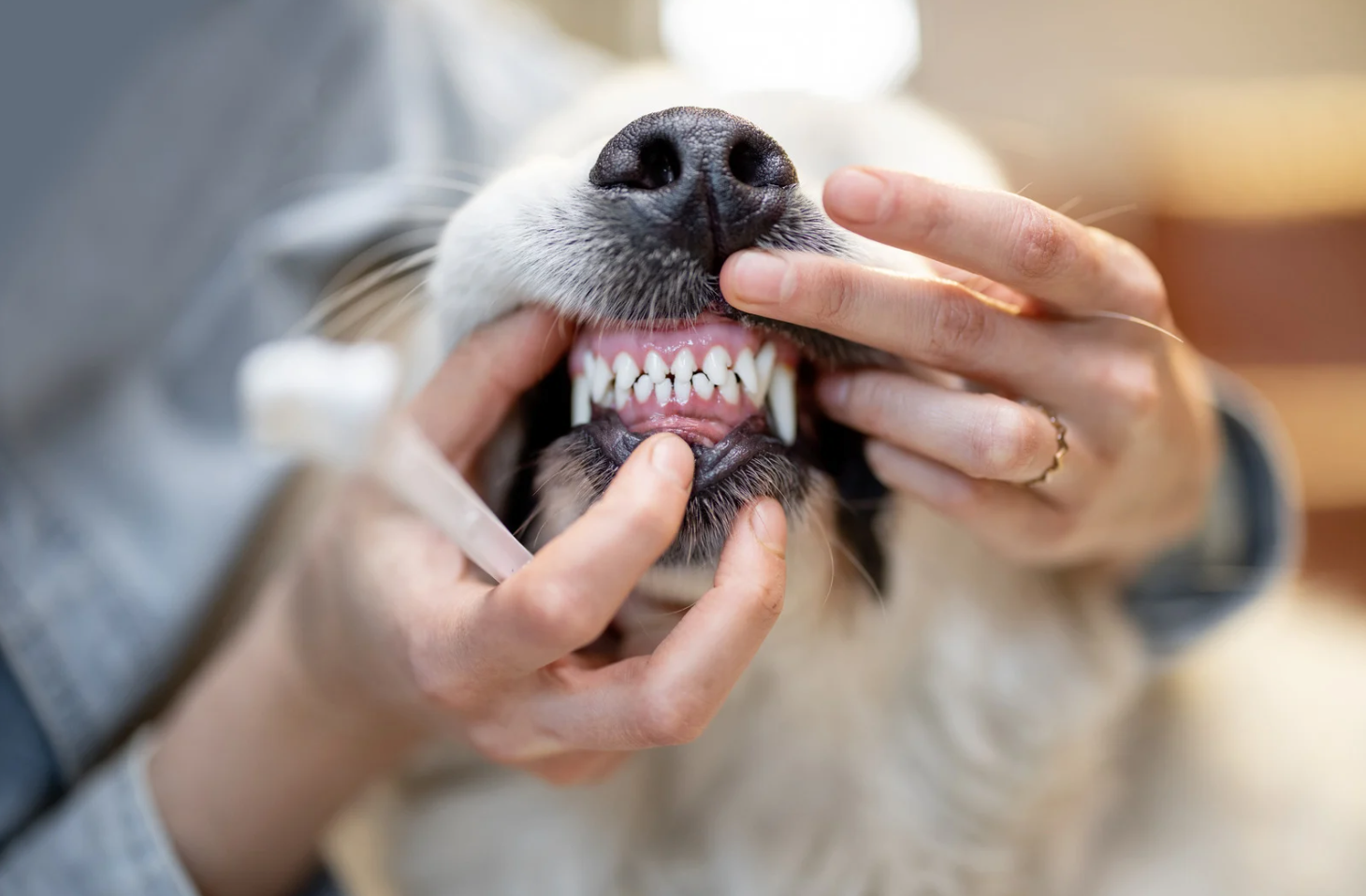News

News
Why Oral Bacteria Matters for Your Dog’s Health
by Jake Krempasky on Mar 31 2025
Every time your dog gives you a big, slobbery kiss, you might joke about their “doggy breath.” But did you know that the bacteria in your dog’s mouth could be affecting much more than just their breath?
Studies estimate that over 80% of dogs older than 3 have some form of periodontal disease. That’s not just a stinky statistic – it hints at an invisible world of oral bacteria that can impact your pup’s heart, kidneys, and even brain. In this post, we’ll explore why those tiny mouth germs play such a big role in your dog’s overall health, and how you can keep the bad bugs in check.
The Microbiome in Fido’s Mouth
Your dog’s mouth isn’t just teeth and drool – it’s a whole ecosystem. In fact, there are hundreds of different bacteria species living in a dog’s mouth at any given time. This microscopic community is known as the oral microbiome.
Just like your dog’s gut microbiome helps with digestion, the oral microbiome has important jobs: aiding digestion, supporting the immune system, and keeping harmful microbes at bay.
But it’s a balancing act. Think of “good” bacteria as the friendly hall monitors – they form a protective biofilm on teeth and gums, which stops the “bad” bacteria from running wild. When the balance is healthy, your dog’s teeth stay clean and gums stay pink. Problems start when the bad bacteria take over. This can happen if plaque isn’t regularly cleaned off. The bad bugs multiply and release toxins, causing inflammation in the gums – hello, gingivitis.
Dogs also carry species-specific bacteria like Porphyromonas gulae, a leading cause of canine periodontal disease. While humans have Porphyromonas gingivalis, the results are similar – inflamed, infected gums that can lead to more serious health issues.
From the Mouth to the Body – The Domino Effect
So how could your dog’s mouth bacteria affect, say, their heart?
When periodontal disease sets in, harmful bacteria cause the gums to become inflamed and leaky. Those germs can enter the bloodstream and travel to other organs. Research has found oral bacteria from dogs in the heart valves, liver, and kidneys — and they can cause infections in those areas.
One study even linked severe gum infections to elevated risk of heart disease in dogs. In severe cases, bacteria from the mouth can cause conditions like endocarditis (heart valve infection) or worsen kidney disease.
At the very least, a dog with a painful, infected tooth may stop eating well — leading to weight loss, fatigue, and a drop in quality of life.
Signs Your Dog’s Bacteria Are Out of Balance
Here are some common signs that harmful oral bacteria might be affecting your dog:
Persistent bad breath
Yellow-brown plaque or tartar on the teeth
Red, inflamed, or bleeding gums
Difficulty chewing or dropping food
Pawing at the mouth or avoiding chew toys
Healthy gums should be firm and pink, not red or swollen. Lift your dog’s lip once a month to check for signs of gum disease. Remember: by age three, more than 80% of dogs already have signs of periodontal disease — and smaller breeds often experience it earlier due to crowded teeth.
Keeping the Bad Bacteria at Bay
You can help control your dog’s oral bacteria with a few consistent habits:
Brush their teeth: Daily brushing with dog-safe toothpaste is the gold standard. Even brushing a few times a week helps reduce plaque buildup.
Dental chews and treats: VOHC-approved dental chews can help reduce plaque by 12–17%. Just make sure they’re not too hard or calorie-dense.
Vet cleanings: Professional cleanings under anesthesia are the only way to remove tartar under the gums. Your vet can recommend a schedule based on your dog’s needs.
Chew toys and a healthy diet: Safe chew toys and crunchy food can help scrape off plaque and support oral health. Avoid very hard objects like bones or antlers that can break teeth.
Conclusion
Oral bacteria matters because your dog’s mouth is the gateway to their overall health. A clean, balanced oral microbiome can add years to your dog’s life — while harmful bacteria can quietly cause damage far beyond the teeth and gums.
By making small changes to your daily routine — like brushing, vet checkups, and choosing the right dental products — you can help your dog stay happy, healthy, and kissably fresh.
Want more science-backed pet health tips? Subscribe to our newsletter and be the first to learn about our upcoming product launches, expert advice, and exclusive offers.
